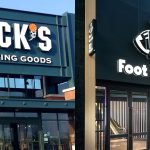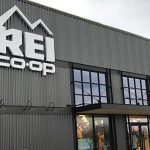Instances of non-compliance with REI’s Factory Code of Conduct quadrupled in 2013 as it doubled the number of visits to its factories and auditors heightened their scrutiny of safety and evacuation procedures in the wake of the Bangladeshi and Pakistani factory disasters in recent years.
In 2013, 48 of 132 factories making REI brand products were audited or assessed, totaling 36 percent of the company’s supply chain, compared with just 35 factories in 2012, according to retail cooperative’s 2013 Stewardship Report, which was released Thursday. The report outlines progress REI makes each year in supporting its communities, creating sustainable operations and products and creating a healthy workplace.
REI reported that new code provisions relating to the structural integrity of buildings also contributed to 196 findings of non-compliance in 2013 compared with just 50 in 2012.
The findings were derived from standard audits uploaded by REI and other companies to the Fair Factories Clearinghouse (FCC). Outdoor and athletic brands and retailers exchange information on FCC to reduce the burden on factories of redundant audits. In 2013, for instance, REI obtained six of the 48 audits from other brands that contract with common factories and maintain high standards for compliance.
Partnering with MEC to train bike vendors
In one specific instance, REI shared audit information with industry peer Mountain Equipment Co-Op (MEC) of Canada as part of an initiative to educate bike suppliers about its social compliance standards. The two co-ops overlap in 13 facilities and had previously shared audit information on a case-by-case basis. The new process allows REI to share current audits and assessments and follow-up on previous MEC audits to address any past violations.
In one specific instance, REI shared audit information with industry peer Mountain Equipment Co-Op (MEC) of Canada as part of an initiative to educate bike suppliers about its social compliance standards. The two co-ops overlap in 13 facilities and had previously shared audit information on a case-by-case basis. The new process allows REI to share current audits and assessments and follow-up on previous MEC audits to address any past violations.
REI built upon the joint approach in auditing in 2013 by extending this education to its “tier two” factories that manufacture parts as opposed to “tier one” locations where final assembly occurs. REI’s and MEC’s social compliance teams conducted training for “tier 2” bike suppliers (focused on those that applied REI’s Novara label) in Social Compliance 101, and Health and Safety training in Taichung, Taiwan led by service provider UL Responsible Sourcing.
Advancing the Higg Index
In 2013, REI also hired an analyst to focus specifically on expanding its use of the Higg Index to assess environmental and social impacts of REI’s Private Brands products. One of the Higg Index tools, the Environmental Facility Module, is specifically designed to assess sustainability practices at manufacturing sites and is quickly becoming the industry standard. In its first full year of using the Environmental Facility Module, REI field staff visited a total of 46 factories to provide on-site training. Each factory’s participation is factored into a Vendor Scorecard, a relatively new tool used by REI Sourcing teams to prioritize factories for business. The scorecard is also used to facilitate conversations with factories to provide transparency into different aspects of a factory’s strengths and weaknesses.
Advancing the Higg Index
In 2013, REI also hired an analyst to focus specifically on expanding its use of the Higg Index to assess environmental and social impacts of REI’s Private Brands products. One of the Higg Index tools, the Environmental Facility Module, is specifically designed to assess sustainability practices at manufacturing sites and is quickly becoming the industry standard. In its first full year of using the Environmental Facility Module, REI field staff visited a total of 46 factories to provide on-site training. Each factory’s participation is factored into a Vendor Scorecard, a relatively new tool used by REI Sourcing teams to prioritize factories for business. The scorecard is also used to facilitate conversations with factories to provide transparency into different aspects of a factory’s strengths and weaknesses.
Finally, REI trained more of its internal staff to use these tools to vet future suppliers and partnered with other outdoor brands to organize factory training sessions. For instance, the company collaborated with Columbia Sportswear, Patagonia, Mountain Equipment Co-op and VF Corporation to conduct SAC Higg Index trainings in Ho Chi Minh City (HCMC), Vietnam in March. This model was used for additional collaborative factory trainings in Guangzhou, China and Taipei, Taiwan. Additionally, REI partnered with the HCMC branch of the International Labor Organization Better Work Program to train factories on their services in the region. This was the first training of this type for REI’s Vietnam vendors.














